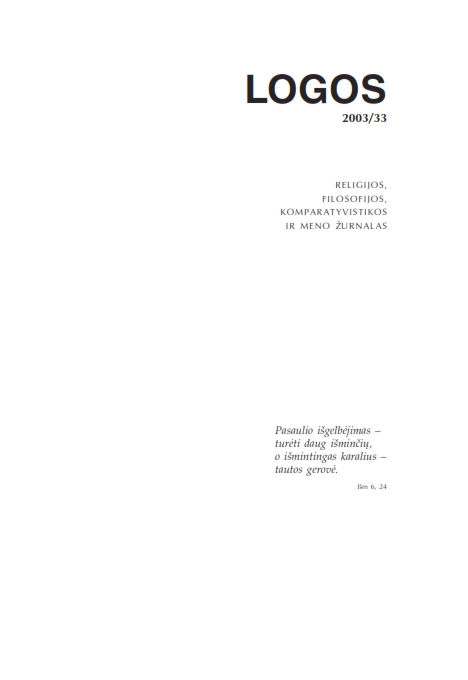Katalikiškasis XIX amžiaus spiritualizmas
Catholic Spiritualism in the 19th Century
Author(s): Bronislovas KuzmickasSubject(s): Christian Theology and Religion, Metaphysics, Social Philosophy, Social history, 19th Century Philosophy, Philosophy of Religion, 19th Century, Ontology
Published by: Visuomeninė organizacija »LOGOS«
Keywords: Spirit; inwardness; experience; introspection; personality; ontologism; augustinism;
Summary/Abstract: One of the most influential strains in Catholic philosophy in the 19th century was spiritualism. Thinkers belonging to this strain emphasized the importance of spirituality in human life and stood in sharp opposition to the views of positivism and scientism. The tension between spiritualism and positivism was particularly strong and dynamic in academic circles in France and Italy. In the article an analysis is given of the concepts of F. P. Maine de Biran, J. Ravaisson-Molien (France) and their followers, whose main contribution to philosophy and psychology consists in the investigation of man’s inward experience as the basis of the personality and an important source of knowledge. The philosophical attitudes of the Italian spiritualists are known by the term ontologism. The leader of Italian spiritualism, A. Rosmini- Serbati, aspired to create a model of Christian-Catholic apologetics, rooted in both Augustinian and Thomistic traditions, able to harmonize rationalism and empiricism and to meet the demands of modern philosophical thought. The core of the theory of the other eminent Italian spiritualist, V. Gioberti, makes the proposition that the being in itself, not merely the being of mind, is present to the intellect.
Journal: LOGOS - A Journal of Religion, Philosophy, Comparative Cultural Studies and Art
- Issue Year: 2003
- Issue No: 33
- Page Range: 6-13
- Page Count: 8
- Language: Lithuanian

